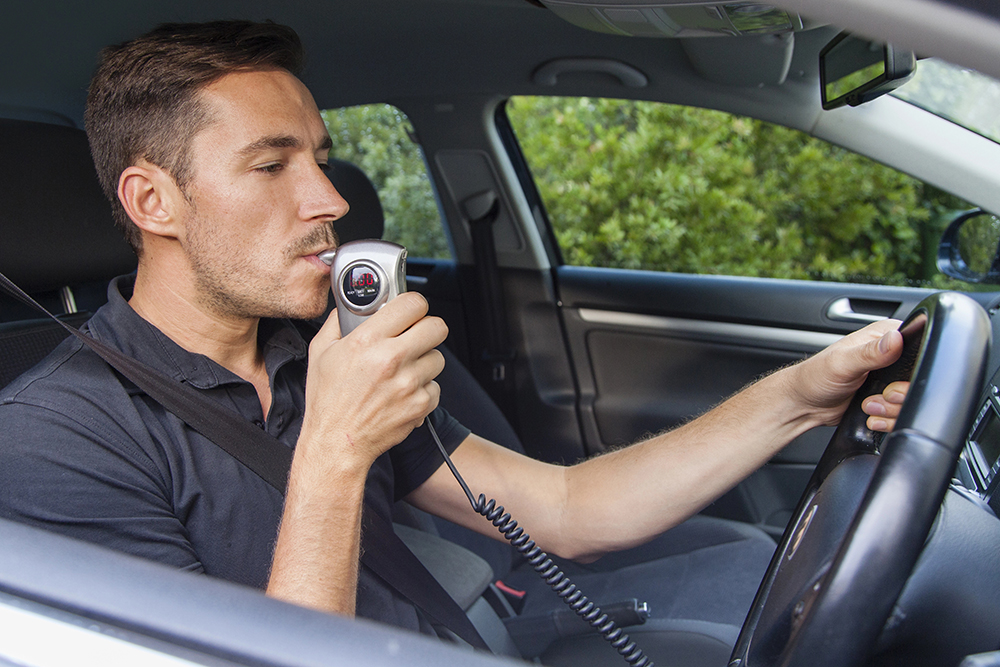Impaired Driving Lawyers in Calgary: Experience Matters
Impaired driving is one of several criminal driving charges that can be filed against drivers in Calgary. It is also known as Driving Under the Influence (DUI) or Driving While Intoxicated (DWI), however, these terms are used more prominently in the United States.
“Impaired driving” is the term used in Canadian law. An impaired driving charge is laid when the police believe that you have operated a vehicle while under the influence of drugs or alcohol to such a degree that it affected your ability to drive safely.
Though impaired driving charges have declined over the past 30 years, in 2018 Calgary had the highest self-reported impaired driving rate. Given the potential seriousness of the consequences of impaired driving, Calgary Police Service takes the offence extremely seriously and is staunchly committed to reducing the number of accidents on the roads.
When facing impaired driving charges, it is critical that you understand whether you are being charged with impaired driving criminally, or via an Immediate Roadside Sanction (“IRS”). If you are charged criminally, the police will take your photograph, fingerprints and you will have a police file. If convicted, you may have a criminal record. Alternatively, an IRS is issued by the province and if convicted, the charges will only appear on your driver’s abstract.
The content of this article is specific to criminal charges for impaired driving. If you have received an IRS, please see here for more information.
Key Takeaways
- Impaired driving charges are hybrid offences, which means they can either be prosecuted summarily or by indictment. This results in different punishments and modes of trial.
- The maximum punishment for an impaired driving offence in no more than 2 years in jail or a $5000 fine.
- There are several defences available for impaired driving charges, including identity, not having blown over the regulated amount and more.

How can an impaired driving lawyer in Calgary help?
An impaired driving lawyer in Calgary can help by advising you on what to do in your court file all the way from talks with the police, being arrested or charged, into trial and beyond that.
Your lawyer will explain all the steps to you, advise you on how to proceed, and help you out with possible defences.
- An impaired driving lawyer will look at the facts of your case and analyze all the possible paths you can take in order to advise you on the best course of action.
- An impaired driving lawyer will discuss with you on what you want to do, considering all of the options available.
- An impaired driving lawyer will examine defences for you in order to lower the punishment you may face.
- An impaired driving lawyer will also look at potential options for you to reduce your sentence, or get you out of jail, such as bail conditions.
Impaired Driving Charge in the Criminal Code of Canada
Examples of Impaired Driving Charges
Some examples of an impaired driving charge may include the following:
- The accused was driving with a blood alcohol level of over 0.8;
- The accused was impaired while driving a vehicle or drug or combination;
- The accused was found with a BAC of 0.8 within two hours of having operated a car;
- The accused was found with a blood drug concentration that exceeds the limit given by regulation within two hours of having driven a car; and
- The accused was found with a BAC and blood drug concentration higher than the prescribed limit within two hours of having driven a car.
Impaired Driving Charge Defences
- Factual innocence: A strong defence against an impaired driving charge is to maintain that you are factually innocent. If you can show that the facts and the evidence do not support that you were committing an impaired driving offence, you may have a defence that you were factually innocent.
- Not Impaired while Driving: Another strong defence would be to prove that you did not drive while impaired or that there is not enough evidence to prove that you drove while impaired. This can be proven using circumstantial evidence, for example, a faulty breath test or even a breath test where you did not blow over the limits.
- Identity: A defence based on the identity of the perpetrator may be a defence to an impaired driving charge. In order for this defence to be raised successfully in court, you would have to prove that you did not commit this act. This is a defence that states that the accused was wrongfully convicted. Evidence that can be submitted to create a solid identification defence is eyewitness identification, DNA evidence, media and fingerprints.
- Any applicable Charter defences: The Charter sets out your rights and freedoms before and after your arrest. If the police fail to abide by these rights deliberately or inadvertently, it could aid in your defence. If any of your Charter rights have been violated before or after your arrest, you may be able to have some or all of the evidence that the Crown is relying on to secure a conviction excluded under s. 24(2) of the Charter.

What are the consequences of an impaired driving charge?
An Impaired driving charge entails a maximum punishment as follows:
- Imprisonment for a maximum of a term of no more than two years in jail or a $5000 fine.
Punishments for an impaired driving offence depend on the accused’s circumstances and the facts of the case. Thus, the maximum punishment is not more than two years in jail.
There are several possible minimum sentences for impaired driving offences, depending on whether this is your first or subsequent offence. These are a $1000 fine and a 12 month driving prohibition for first time offences, 30 days in jail and a 2 to 5 years driving prohibition for second offences, or 120 days in jail and a 3 or more years driving prohibition for third or higher offences.
An impaired driving offence can also entail severe consequences for current and future employment opportunities and immigration status.
Potential increased penalties with notice of increased penalty under s. 727 of the Criminal Code are also possible for impaired driving offences. This means that the accused can face higher terms of imprisonment, depending on the circumstances and facts of their case. You may also face driving prohibition and forfeiture of vehicle orders.
Those charged with impaired driving offences under s. 320.14 also have fines, fines with probation, jail, jail and probation, jail and probation or jail and fine as available dispositions. These are up to the discretion of the trial judge.
Counsel may also be able to lower the jail sentence through discussions with the Crown prosecutors.
Beyond any immediate jail and/or probation sentence you receive, there is also a discretionary DNA Order if the offence is prosecuted by indictment.
The indictable offence is authorized as a secondary offence listed under s. 487.04 (c), (d) or (e), and the DNA order can be authorized regardless of if the Crown proceeds summarily or by indictment.
Aggravating Factors
Depending on whether the offence is your first or whether it is a subsequent one, you may face higher punishments. S. 320.19 notes that for a first offence, you are likely to receive a fine of $1000, while for a second you will received a term of imprisonment of 30 days. For subsequent offences, you face a term of imprisonment of 120 days.
Some further aggravating factors are detailed in s. 320.22. They include cases where the offence resulted in bodily harm of another, a minor was in the car, the blood alcohol content of the offender was over 120 mg of alcohol in 100 mL of blood, the offender was driving or otherwise operating a large motor vehicle or the offender was not permitted to drive the vehicle by law.
Any injuries that passengers or other persons suffered, high BAC readings, and previous related convictions are all aggravating factors.
Impaired Driving Charge Investigation
An investigation regarding an impaired driving charge will look at the actus reus and mens rea of the offence in order to determine the level of guilt.
The actus reus for an impaired driving charge under s. 320.14 is established by proof, beyond beyond a reasonable doubt, of the following:
Impaired driving s. 320.14
- The accused, in the proper jurisdiction, at a specified date and time, operated a conveyance; and
- The accused was impaired by alcohol or drug.
OR
- The accused operated a conveyance; and
- The accused, within two hours of ceasing to operate the conveyance, had a blood alcohol concentration equal to or exceeding 0.08.
OR
- The accused operated a conveyance; and
- The accused had a blood drug concentration that equalled or exceeded the regulated amount within two hours of having driven.
OR
- The accused operated a conveyance; and
- The accused, within two hours of ceasing to operate the conveyance, had a blood alcohol concentration and blood drug concentration higher than the regulated amount.
The actus reus refers to the act or the omission itself that constitutes the physical elements of a crime. Thus, the physical aspect of an impaired driving charge would be constituted by any physical act, such as the accused operating a car while having a blood alcohol concentration that is over the limit.
The mens rea for an impaired driving charge under s. 320.14 includes proving, beyond a reasonable doubt, that:
- The accused, in the right jurisdiction, at the specified date and time, operated a conveyance knowingly; and
- The accused knowingly and willfully was impaired by alcohol or drug and this impairment was over regulatory limits.
Mens rea is defined as the knowledge or intention of committing the crime. Thus, knowing that one is impaired by alcohol and drug and choosing to operate a conveyance with this knowledge, consists of the mens rea of the charge.

Bail Conditions for Impaired Driving Charges
Every accused has the right through Canadian constitutional law and jurisprudence to reasonable bail.
Bail conditions for impaired driving charges require lawyers and their clients to work out a bail plan, that will allow the accused, if the plan is accused, to go out on bail, rather than be in jail. Moreover, with impaired driving charges, bail conditions do often result in driving prohibitions.
The courts look at bail plans through the ladder principle, which means that courts must grant the least restrictive conditions upon the accused unless the Crown prosecutor can prove that these would not be enough and instead, that restrictive conditions would be more appropriate.
There are three main issues to granting bail that courts take into consideration. Thus, if you are a flight risk, a threat to the public or detention is required for public confidence in the legal system, you will be less likely to receive bail.
Frequently Asked Questions About Impaired Driving
Will an impaired driving charge show on my criminal record while the case is ongoing?
While a case is ongoing, no charges will likely appear on your record.
Will an impaired driving charge show on my criminal record after the case is done?
Arrests for impaired driving charges show up in the police system even if you are not convicted. Thus, they appear even in background checks.
You may also apply for the charge to be removed, through a records suspension process.
How long does an impaired driving case take?
The length of trial for an impaired driving case depends on the circumstances of your case, any setbacks in court or trial and more, however, it usually takes a few months to a year.
Can I travel while an impaired driving case is ongoing?
Yes, you can travel while an impaired driving case is ongoing, as you are not yet guilty of it, and thus, you are innocent and can travel. Your travel may be restricted by certain bail conditions however.
Can I go to jail for impaired driving?
Yes, you can go to jail for impaired driving. The maximum penalty is no more than two years in jail and depends on the way the charge is prosecuted as well as if it is your first or subsequent offence.
Related Offences
- Dangerous operation: This charge relates to those who are accused of operating a vehicle or conveyance in an unsafe manner in the circumstances.
- Operation causing bodily harm: This charge relates to those whoa re accused of operating a vehicle or conveyance in a manner that is dangerous to the public and resulted in bodily harm to another.
- Failure or refusal to comply with demand: This charge relates to those who are accused of refusing to comply with a demand made under s. 320.27 or 320.28 of the Criminal Code, even though they have no reasonable excuse to do so.





